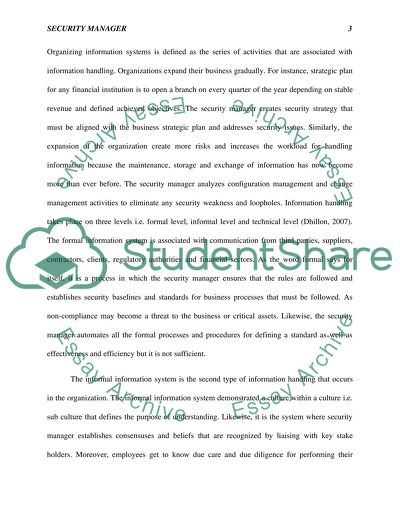Cite this document
(“Security Manager Role Essay Example | Topics and Well Written Essays - 1250 words”, n.d.)
Retrieved from https://studentshare.org/information-technology/1444289-security-manager-role
Retrieved from https://studentshare.org/information-technology/1444289-security-manager-role
(Security Manager Role Essay Example | Topics and Well Written Essays - 1250 Words)
https://studentshare.org/information-technology/1444289-security-manager-role.
https://studentshare.org/information-technology/1444289-security-manager-role.
“Security Manager Role Essay Example | Topics and Well Written Essays - 1250 Words”, n.d. https://studentshare.org/information-technology/1444289-security-manager-role.


